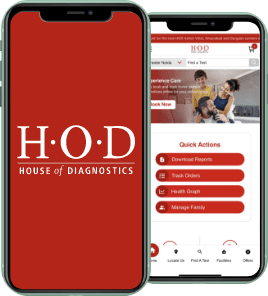

Trending
Vitamin B12: Uses, Deficiency and Food Sources
Vitamin B12 plays a vital role when it comes to various aspects of health including DNA synthesis, bone health, regulating energy levels and influencing mood. Vitamin B12, also known as cobalamin, is an essential vitamin that our bodies need but cannot produce. It is found naturally in animal-based foods and can also be included in dietary supplements. It also contributes to the function and growth of brain and nerve cells.
Some essential bodily functions, in which this vitamin is needed, includes:
- Brain and nervous system health
- Red blood cell formation
- Regulations of DNA (the fundamental genetic material in our cells)
- Potential birth defect prevention
- Helping protect the eyes from macular degeneration
- Necessary for energy production
What is vitamin B12 deficiency?
A deficiency in vitamin B12 happens when the body either lacks an adequate supply or do not absorb the necessary amount of this vital nutrient from the diet. If not treated, it can lead to various physical, neurological and psychological problems.
Its deficiency could be due to the following reasons:
Absence of intrinsic factor, also called pernicious anemia: Our bodies need intrinsic factor (a type of protein) to absorb B12. Intrinsic factor binds with vitamin B12 and takes it to the intestines to be absorbed. Pernicious anemia is a chronic illness caused by impaired absorption of this vitamin.
Removal or destruction of the stomach: People who have had surgery to remove part or all of the stomach can develop its deficiency.
Conditions affecting the intestines: Some conditons like Crohn's disease, which causes inflammation of the lining of the digestive system, can mean that the body does not get enough of this vitamin.
Overgrowth of bacteria: The slow movement of food through the intestines can result in the overgrowth of bacteria in the upper part of the small intestine. These bacteria use B12, rather than allowing it to be absorbed by the body.
Dietary deficiency: Strict vegetarians can develop vitamin B12 deficiency because of lack of this vitamin in their diets.
Symptoms of vitamin B12 deficiency
The deficiency of this vitamin can manifest in many ways with symptoms ranging from mild to severe. If left untreated, it can lead to the following signs and symptoms:
- Weakness, fatigue, and lightheadedness
- Irregular heartbeats and shortness of breath
- Pale or jaundiced skin
- Smooth tongue
- Gastrointestinal symptoms like constipation, diarrhea and loss of appetite
- Nerve problems like numbness or tingling sensations, muscle weakness, and difficulty walking or maintaining balance
- Mood disorders like depression, memory problems, and behavioral changes
Food sources of vitamin B12
Vitamin B12 is naturally present in various animal-derived products and is usually not present in plant-based foods unless artificially added. Rich dietary sources of this vitamin include:
- Poultry
- Lamb
- Fish, notably haddock and tuna
- Dairy items like milk, cheese, and yogurt
- Select nutritional yeast products
- Eggs
- Some plant-based foods fortified with vitamin B12
Treatment
The treatment for its deficiency will vary depending on the underlying cause and severity. Here are the common treatment options:
Pernicious anemia or absorption issues: If you have pernicious anemia or difficulty absorbing vitamin B12, the initial treatment often involves vitamin B12 injections. These shots provide a direct and effective way to replenish your vitamin B12 levels.
Vegetarian diets: Individuals following vegan diets can address the vitamin’s deficiency by modifying their diet to include vitamin B12-fortified grains and plant-based foods.
Sources:
https://ods.od.nih.gov/factsheets/VitaminB12-HealthProfessional/
https://www.medicalnewstoday.com/articles/219822#foods


